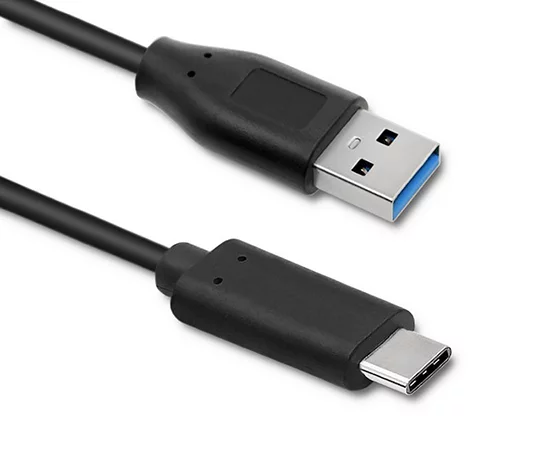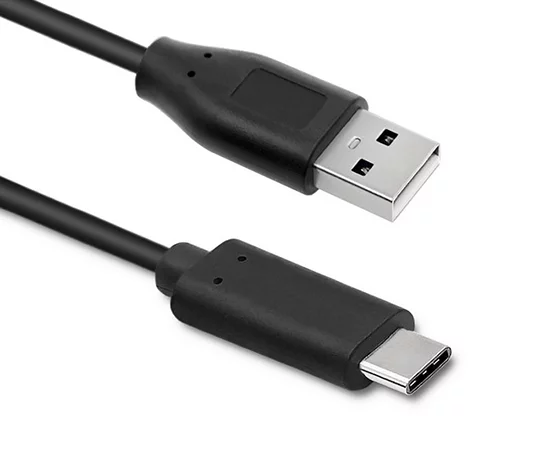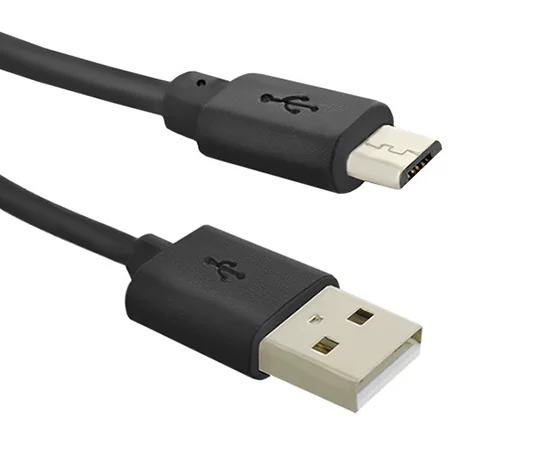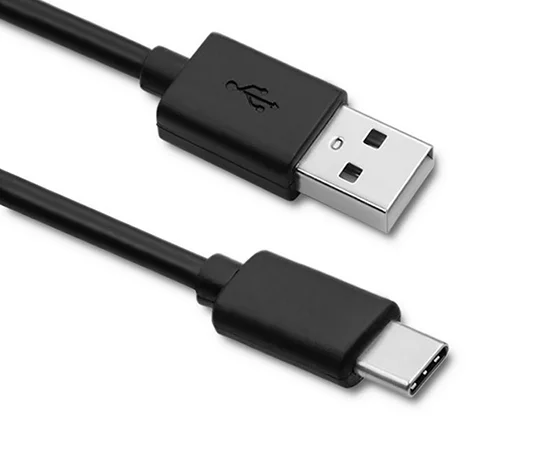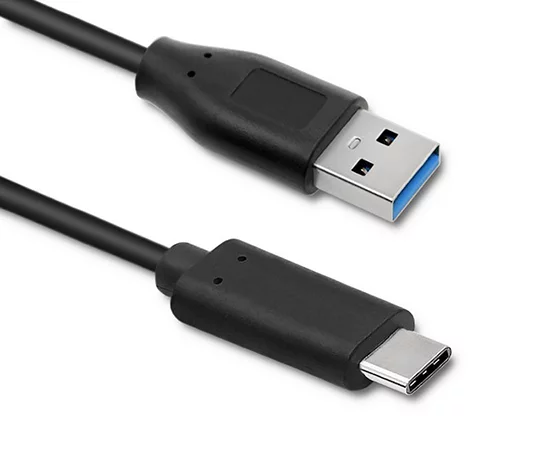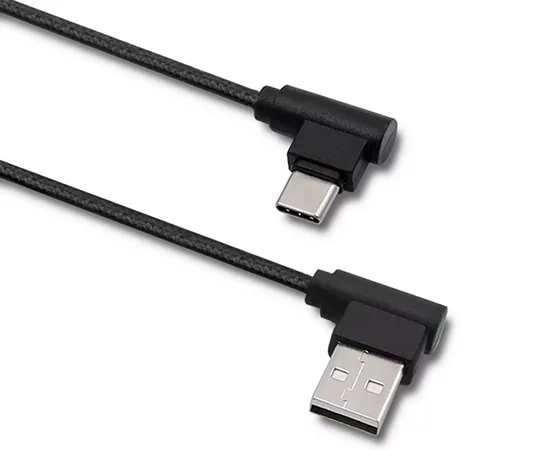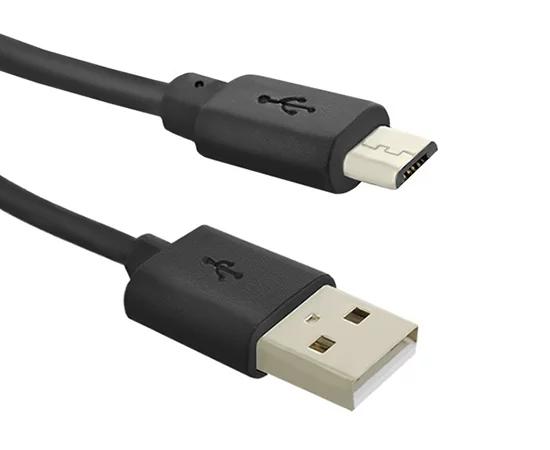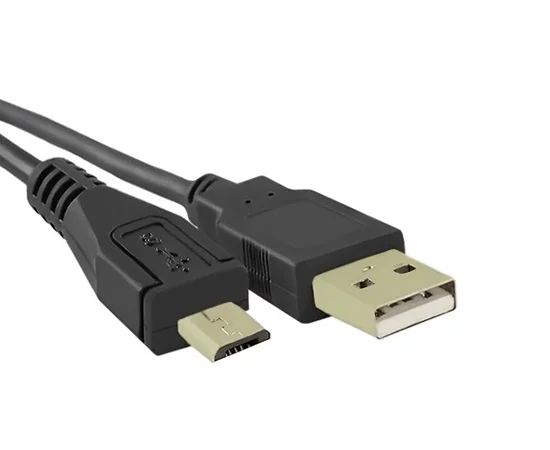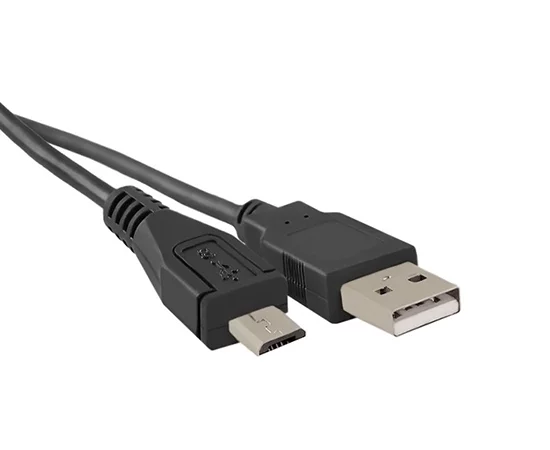We recommend USB cables from Qoltec
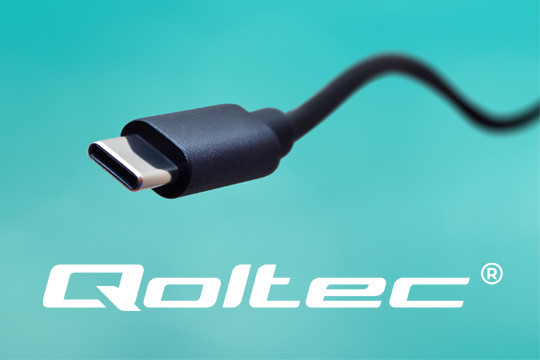
USB Cables (Universal Serial Bus) are wires used for transmitting data and power between various electronic devices. The USB standard was developed to provide an easy and universal way of connecting devices to computers and to each other. USB cables consist of wires that enable data transmission and additional wires that provide power, allowing for battery charging and operation of portable devices. USB cables are widely used in various fields and industries due to their versatility and universality.
Applications of USB Cables:
1. Charging Mobile Devices:
- Smartphones and Tablets: Cables can be used to charge smartphones, tablets, and other mobile devices with USB ports.
- Power Banks: They allow charging of portable batteries, which are used to power devices on the go.
2. Data Transfer:
- Computers and Laptops: Enable fast and reliable data transfer between a computer or laptop and peripheral devices such as printers, scanners, external drives, keyboards, and mice.
- USB Flash Drives and External Drives: Cables are ideal for transferring files to and from portable storage devices like flash drives and hard drives.
3. Peripheral Connections:
- Printers and Scanners: Provide a stable connection to printers and scanners, essential for printing documents and scanning images and texts.
- Webcams and Microphones: Can be used to connect webcams and microphones, which is particularly useful for remote work and video conferencing.
4. Multimedia:
- MP3/MP4 Players: Allow charging and data transfer to and from music and video players.
- Game Consoles: Can be used to charge portable gaming consoles and synchronize data with a computer.
5. Smart Devices:
- Smartwatches and Fitness Bands: Cables enable charging and data synchronization between wearable devices and a computer.
- Bluetooth Speakers: Allow charging of portable speakers and other audio devices.
6. Home Office:
- Docking Stations: Can be used to connect docking stations, which are useful in offices and remote work environments.
- USB Hubs: Cables enable connection to USB hubs, which expand the number of available USB ports on a computer.
A USB Cable (Universal Serial Bus) is designed to enable data transfer and power delivery between devices. The basic structure of a USB cable includes:
1. Internal Wires: The USB cable contains several conductive wires, each serving a specific function:
- Two Data Wires: One for the data signal (D+), and the other for the data signal (D-). These wires are used for transmitting information between devices.
- Two Power Wires: One wire (+5V) for transmitting the power voltage and another (GND) for grounding.
2. Insulation: Each wire is insulated to prevent short circuits and interference between the wires.
3. Outer Casing: The cable is shielded with an outer protective layer, which safeguards the internal wires from damage, wear, and environmental factors.
Thus, the USB cable is constructed to ensure both functionality (data transmission and power delivery) and durability, as well as resistance to various operating conditions.
If you want to check current stock levels and prices, click on the product symbols.
| SYMBOL | DESCRIPTION |
|---|---|
|
50420 Cabel USB 3.0 0,25m Qoltec
|
USB 3.0 Cable; USB A plug; USB C plug; 25cm; Black; |
|
50496 Cable USB 2.0 0,25m Qoltec
|
USB 2.0 Cable; USB A plug; USB C plug; 25cm; Black; |
|
50498 Cable USB 2.0 0,5m Qoltec
|
USB 2.0 Cable; USB A plug; USB B micro plug; 50cm; Black; |
|
50488 Cable USB 2.0 1.2m Qoltec
|
USB 2.0 Cable; USB A plug; USB C plug; 1,2m; Black; |
|
50492 Cable USB 3.0 1,5m Qoltec
|
USB 3.0 Cable; USB A plug; USB C plug; 1,5m; Black; |
|
50489 Cable USB 2.0 1,5m Qoltec
|
USB 2.0 Cable; USB A plug; USB C plug; 1,5m; Black; |
|
|
USB 2.0 Cable; USB A plug (angle); USB C plug (angle); 1m; Black; |
|
50497 Cable USB 2.0 0,25m Qoltec
|
USB 2.0 Cable; USB A plug; USB B micro plug; 25cm; Black; |
|
50520 Cable USB 2.0 0,1m Qoltec
|
USB 2.0 Cable; USB A plug; USB B micro plug; 10cm; Black; |
|
|
USB 2.0 Cable; USB A plug; USB B micro plug; 1m; Black; |
